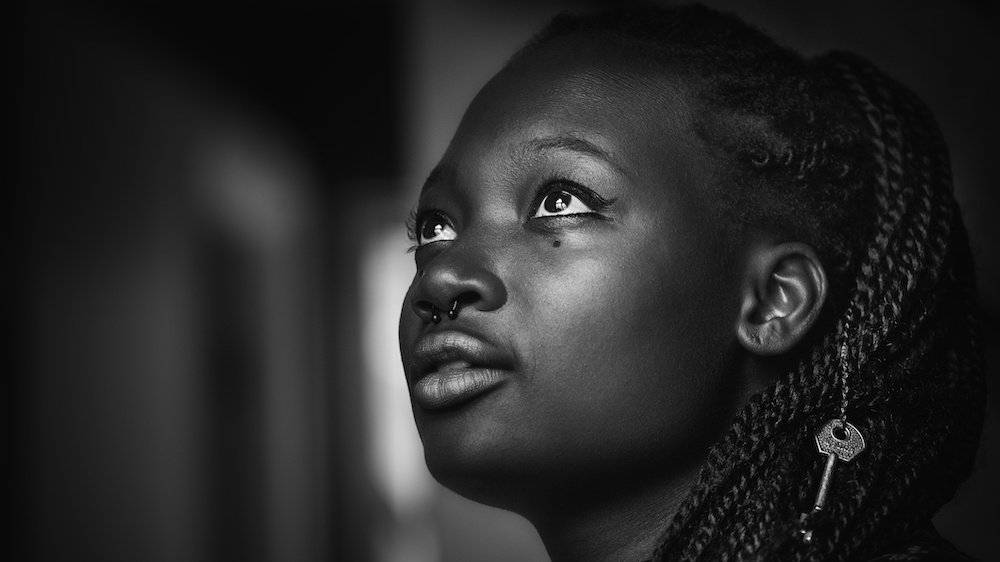If you’re interested in sharing your opinion on any cultural, political or personal topic, create an account here and check out our how-to post to learn more.
Opinions are the writer’s own and not those of Blavity's.
____
Recently, the assassination of Haitian President Jovenel Moise sent shock waves to Haitians across the globe. For many, the assassination of President Moise was another example of a “failed state,” but nothing could be further from the truth.
The people of Haiti continue to suffer the consequences of racism after they fought for independence from France, becoming the first free Black Republic in the Western Hemisphere. What followed was a history of exploitation and neocolonialism resulting in political and economic instability. As a result of a long history of traumatic events, ranging from political instability to natural disasters such as the 2010 earthquake, Haitians and their descendants continue to experience post-traumatic stress.
The shocking assassination of President Moise is the crescendo of nearly 18 months of escalating epidemics of violence and COVID-19, with Haiti being the only country in the Western hemisphere without the readily-available COVID-19 vaccine. While all this occurs, the group with the most significant risk of devastating impact continues to be marginalized and neglected — Haitian mothers.
As a Black Haitian-American OB-GYN, I am clear about the consequences of minimizing women and mothers as we continue to organize and heal. Over the past several years, there has finally been an increased focus on the unacceptable rate at which Black women die from pregnancy complications caused by racism and its manifestations ranging from the impact of chronic stress on individuals, to bias in healthcare settings and differential access to resources. Public health and medicine have yet to fully acknowledge and mitigate how other spheres of oppression — like anti-immigrant rhetoric and violence — contribute to the Black maternal health crisis.
Haitian women and pregnant people continue to pay the ultimate price for this neglect. In New York City where I live, Haitian immigrant mothers have the highest risk of complications in pregnancy than any other group. Infants born to Haitian immigrants have also been shown to have increased risk of infant mortality when compared to most other Black immigrant populations. The unique barriers and contributors include those related to immigration, language/cultural barriers and something not discussed enough — xenophobia.
Blackness is not a monolith. In a city like New York where a significant proportion of the Black community is foreign-born, a specialized focus on how overlapping barriers impact Black immigrants is epidemiologically necessary and morally urgent. Black immigrants reside in communities that suffer from historical and ongoing structural racism, while facing unique barriers related to the immigrant experience. Having served the Haitian immigrant community for over 10 years, I have personally witnessed the way in which racism — both explicitly and implicitly — impacts this community. I’ve heard discriminatory comments and observed discrimination in clinical care. I have also heard countless comments stigmatizing Haitian immigrants based on our culture and the belief that Haitian immigrants are of a lower socioeconomic status.
My experience is not an anomaly. Recently, a Black OBGYN detailed witnessing her colleagues state, “You can’t kill a creole.” Our community has been uniquely marginalized and discriminated against by the medical establishment for generations: being categorized (without evidence) as carriers for HIV, described as “boat people” by the news media and, most recently, labeled as originating from a “s**thole” country by the former President of the United States. These are the chronically stressful and toxic conditions in which Haitian mothers give birth. Investigation by the NYC Health Department revealed that Haitian immigrant mothers reported experiencing more stressful events and racial bias than other immigrant mothers, which contributes to our infant and maternal morbidity and mortality crises.
The epidemics of anti-Black racism and COVID-19, affecting both United States and Haiti, serve as a clear call for public health, healthcare, philanthropy and government to invest in our community, the second largest foreign-born Black population in the United States. We call for all institutions and organizations that serve this community to invest in this work to build the capacity to serve the Haitian community. The time is now to support a community hub that centers Haitian culture, provides needed support and applies an anti-racist lens to its community and capacity building. True asset-based capacity building would include reducing barriers related to language/culture and providing anti-bias training that extends past race to include ethnicity. Lastly, we expect there to be Haitian representation at the decision-making table at all institutions that provide care to the community.
In a place like NYC, which outwardly embraces diversity, we will not attain health equity or improve maternal health without a targeted and special focus on Black immigrants. If Haitians had the vision and strength to become the first Black republic, what could be accomplished in the fight for Black liberation if Haitian moms were respected and supported? Haitians and their descendants are rightfully proud and resilient. With proper support, we can continue to move past the monolith we have been subjected to and ensure that the Black community is recognized for all of its stripes and colors.
